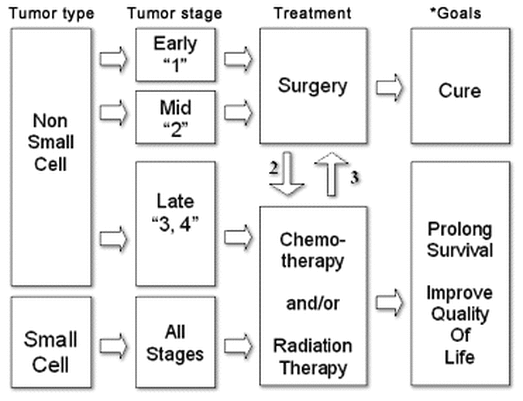Treatment of Lung Cancer
Using the information gained by tests to determine diagnosis and staging, the best treatment is determined. The cancer specialists on the team pool their resources to arrive at the best combination of methods to treat a patient. For some patients, this may be the treatment of a single doctor, like a surgeon to remove an early stage tumor. However, for many patients several cancer specialists will become involved.
While there are multiple exceptions, here is a basic diagram to describe the treatment for many lung cancer patients.
While there are multiple exceptions, here is a basic diagram to describe the treatment for many lung cancer patients.
Patients can be cured at every stage of cancer, but at more advanced stages the likelihood of cure is reduced so that more practical goals are adopted.
